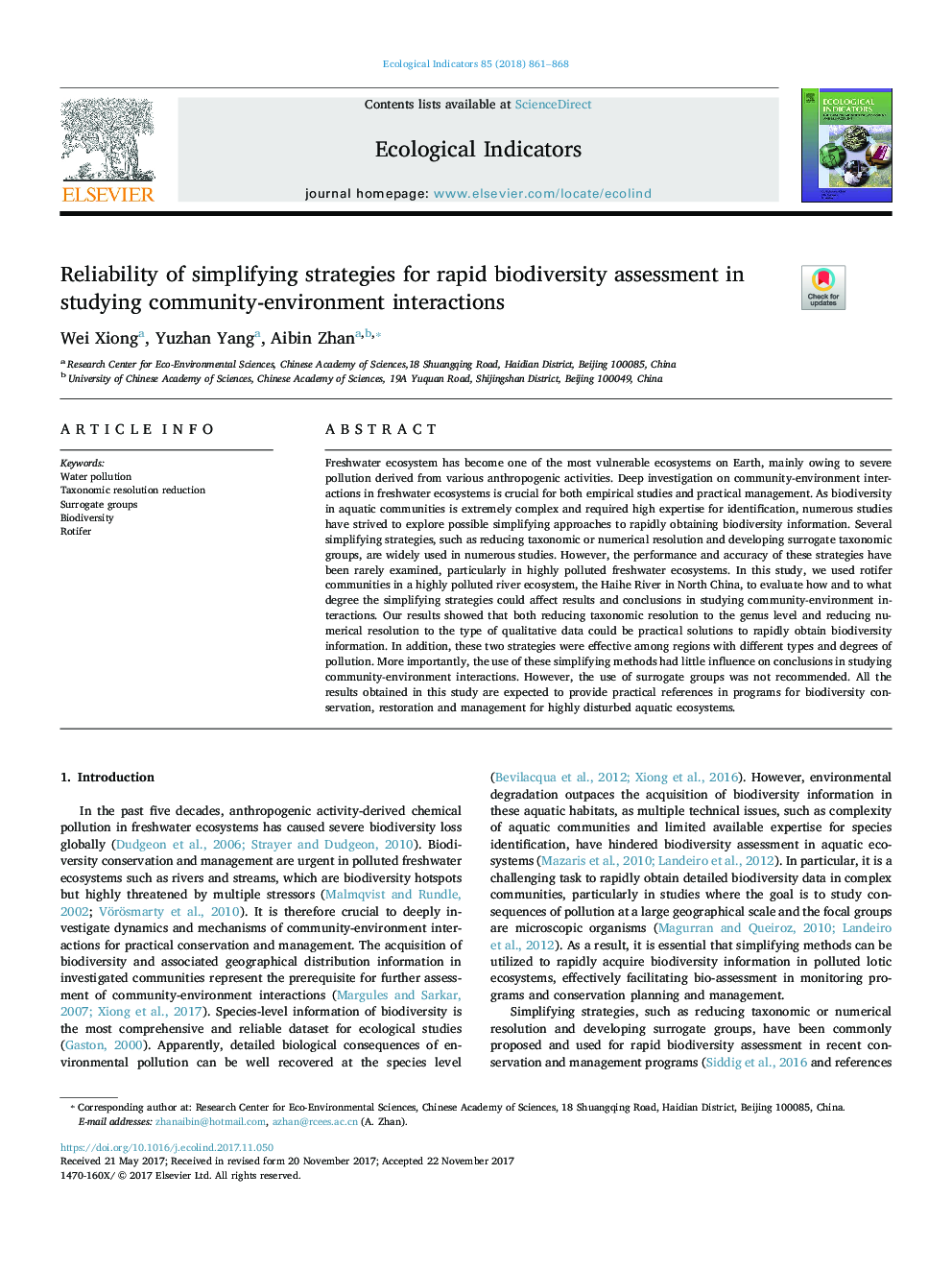| Article ID | Journal | Published Year | Pages | File Type |
|---|---|---|---|---|
| 8845762 | Ecological Indicators | 2018 | 8 Pages |
Abstract
Freshwater ecosystem has become one of the most vulnerable ecosystems on Earth, mainly owing to severe pollution derived from various anthropogenic activities. Deep investigation on community-environment interactions in freshwater ecosystems is crucial for both empirical studies and practical management. As biodiversity in aquatic communities is extremely complex and required high expertise for identification, numerous studies have strived to explore possible simplifying approaches to rapidly obtaining biodiversity information. Several simplifying strategies, such as reducing taxonomic or numerical resolution and developing surrogate taxonomic groups, are widely used in numerous studies. However, the performance and accuracy of these strategies have been rarely examined, particularly in highly polluted freshwater ecosystems. In this study, we used rotifer communities in a highly polluted river ecosystem, the Haihe River in North China, to evaluate how and to what degree the simplifying strategies could affect results and conclusions in studying community-environment interactions. Our results showed that both reducing taxonomic resolution to the genus level and reducing numerical resolution to the type of qualitative data could be practical solutions to rapidly obtain biodiversity information. In addition, these two strategies were effective among regions with different types and degrees of pollution. More importantly, the use of these simplifying methods had little influence on conclusions in studying community-environment interactions. However, the use of surrogate groups was not recommended. All the results obtained in this study are expected to provide practical references in programs for biodiversity conservation, restoration and management for highly disturbed aquatic ecosystems.
Keywords
Related Topics
Life Sciences
Agricultural and Biological Sciences
Ecology, Evolution, Behavior and Systematics
Authors
Wei Xiong, Yuzhan Yang, Aibin Zhan,
